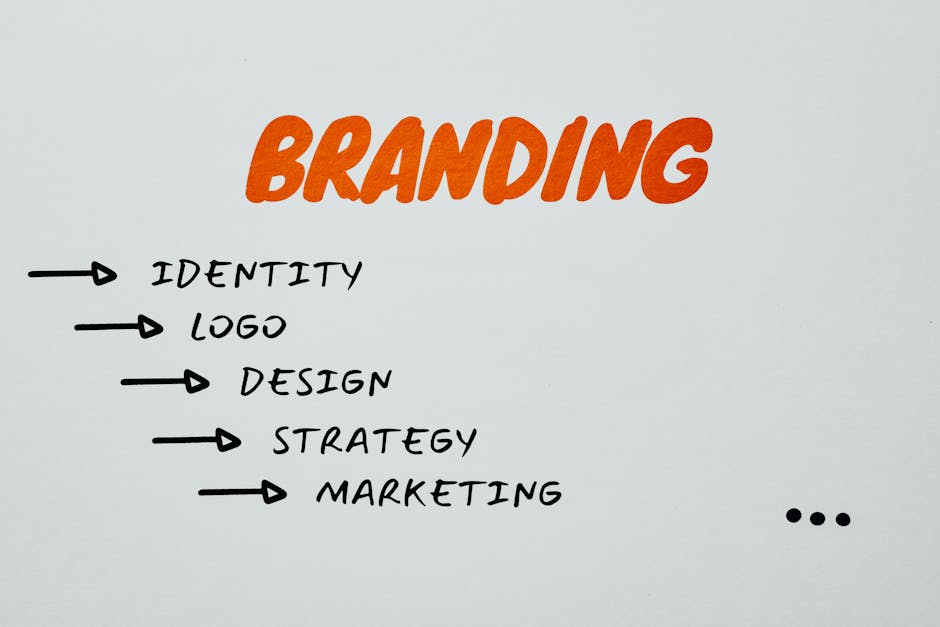Socially Impactful Branding: Making a Difference One Brand at a Time
When we think of branding, we often associate it with logos, slogans, and marketing strategies. However, in recent years, a new concept has emerged that goes beyond just selling products and services socially impactful branding. This innovative approach focuses on using a brand’s influence and reach to make a positive difference in society. From environmental conservation to social justice, socially impactful branding aims to create a meaningful impact on the world we live in.
But what exactly is socially impactful branding, and how does it work? In this article, we will delve deep into the world of socially impactful branding, exploring its various dimensions, real-life examples, and the potential it holds for shaping a better future. Join us on this journey as we uncover the power of brands to drive positive change and leave a lasting impact on society.
The Evolution of Socially Impactful Branding

Socially impactful branding is not a new concept, but rather an evolution of traditional branding practices. In the past, brands focused primarily on profit-making and building a loyal customer base. However, as consumers become more socially conscious and demand transparency from companies, brands are now being held accountable for their social and environmental impact.
One of the key drivers behind the rise of socially impactful branding is the Millennial and Gen Z consumer segments. These generations are known for their strong values and beliefs, and they are more likely to support brands that align with their ethical principles. As a result, companies are now incorporating social responsibility into their branding strategies to attract and retain these socially conscious consumers.
Moreover, with the growing awareness of global issues such as climate change, poverty, and inequality, brands are realizing the need to step up and contribute to positive change. By leveraging their influence and resources, brands can address these pressing issues and make a tangible impact on society.
The Elements of Socially Impactful Branding

Socially impactful branding encompasses various elements that work together to create a meaningful and sustainable impact. These elements include:
1. Purpose-Driven Messaging

At the core of socially impactful branding is a clear and compelling purpose that drives the brand’s mission and values. Brands that are purpose-driven communicate their commitment to social causes through their messaging, branding, and actions. By aligning their purpose with societal needs, these brands can build trust and credibility with consumers who share their values.
One example of a purpose-driven brand is TOMS, a shoe company that operates on a one-for-one model. For every pair of shoes purchased, TOMS donates a pair to a child in need. This simple yet powerful concept has resonated with consumers worldwide, making TOMS a leading socially impactful brand.
2. Corporate Social Responsibility Initiatives

Another important aspect of socially impactful branding is the implementation of corporate social responsibility (CSR) initiatives. These initiatives involve a company’s efforts to give back to society, whether through charitable donations, environmental sustainability programs, or community outreach projects.
For example, Patagonia, an outdoor clothing company, is renowned for its commitment to environmental conservation. Through its “Worn Wear” program, Patagonia encourages customers to repair and recycle their old clothing, reducing waste and promoting sustainable consumption. By taking a proactive stance on environmental issues, Patagonia has earned a reputation as a socially responsible brand.
3. Authenticity and Transparency
Authenticity and transparency are essential components of socially impactful branding. Consumers today are more discerning than ever, and they expect brands to be honest and genuine in their social impact efforts. Brands that demonstrate authenticity and transparency build trust with consumers and establish long-lasting relationships.
An example of a brand that exemplifies authenticity is Dove, a personal care brand owned by Unilever. Dove’s “Campaign for Real Beauty” challenged conventional beauty standards and promoted body positivity through its advertising campaigns. By staying true to its values and principles, Dove has earned the trust and loyalty of consumers worldwide.
4. Collaboration and Partnerships
Collaboration and partnerships play a crucial role in socially impactful branding, as they allow brands to amplify their impact and reach a wider audience. By teaming up with non-profit organizations, government agencies, or other brands, companies can leverage their collective resources and expertise to tackle complex social issues.
One notable example of a successful collaboration is the partnership between Starbucks and Conservation International. Together, they launched the “Coffee and Farmer Equity (C.A.F.E.) Practices” program, which promotes sustainable coffee farming practices and supports coffee farmers in developing countries. Through this partnership, Starbucks has demonstrated its commitment to ethical sourcing and environmental stewardship.
5. Employee Engagement and Advocacy
Employee engagement and advocacy are key drivers of socially impactful branding, as employees are often the face of a brand and play a crucial role in promoting its values and initiatives. Brands that prioritize employee well-being, diversity, and inclusion can create a positive work culture that extends to their external brand image.
One company that excels in employee engagement is Salesforce, a cloud-based software company. Salesforce is known for its progressive workplace policies, including equal pay for equal work, parental leave, and diversity initiatives. By investing in its employees’ well-being and professional growth, Salesforce has built a loyal and dedicated workforce that champions the brand’s values.
The Future of Socially Impactful Branding
As we look ahead, the future of socially impactful branding is promising, with more brands recognizing the importance of social responsibility and sustainability. In a rapidly changing world, brands have the opportunity to lead by example and drive positive change in society.
By integrating socially impactful branding into their core business strategies, companies can not only attract consumers but also create a lasting legacy that benefits future generations. Whether through philanthropy, environmental stewardship, or social advocacy, brands have the power to make a difference and shape a better world for all.
Common Misconceptions About Socially Impactful Branding
One common misconception about socially impactful branding is that it is merely a marketing gimmick or a trend that will fade away. In reality, socially impactful branding is a strategic approach that goes beyond marketing and requires a genuine commitment to social and environmental causes.
Another misconception is that socially impactful branding is only for large corporations with vast resources. While big brands may have more influence and reach, socially impactful branding is accessible to companies of all sizes. Small businesses and startups can also make a significant impact by aligning their values with social causes and engaging their communities.
Conclusion
To wrap things up, socially impactful branding is a powerful tool that allows brands to make a positive difference in the world. By adopting a purpose-driven approach, implementing CSR initiatives, and prioritizing authenticity and transparency, brands can build trust with consumers and drive meaningful change.
As we move forward, it is essential for brands to embrace socially impactful branding and take an active role in addressing pressing social and environmental issues. By working together and leveraging their collective resources, brands can create a more sustainable and equitable future for all.
Remember, the choices we make as consumers have the power to shape the world we live in. So, the next time you make a purchase, consider supporting brands that are committed to making a positive impact. Together, we can build a better tomorrow through socially impactful branding.




